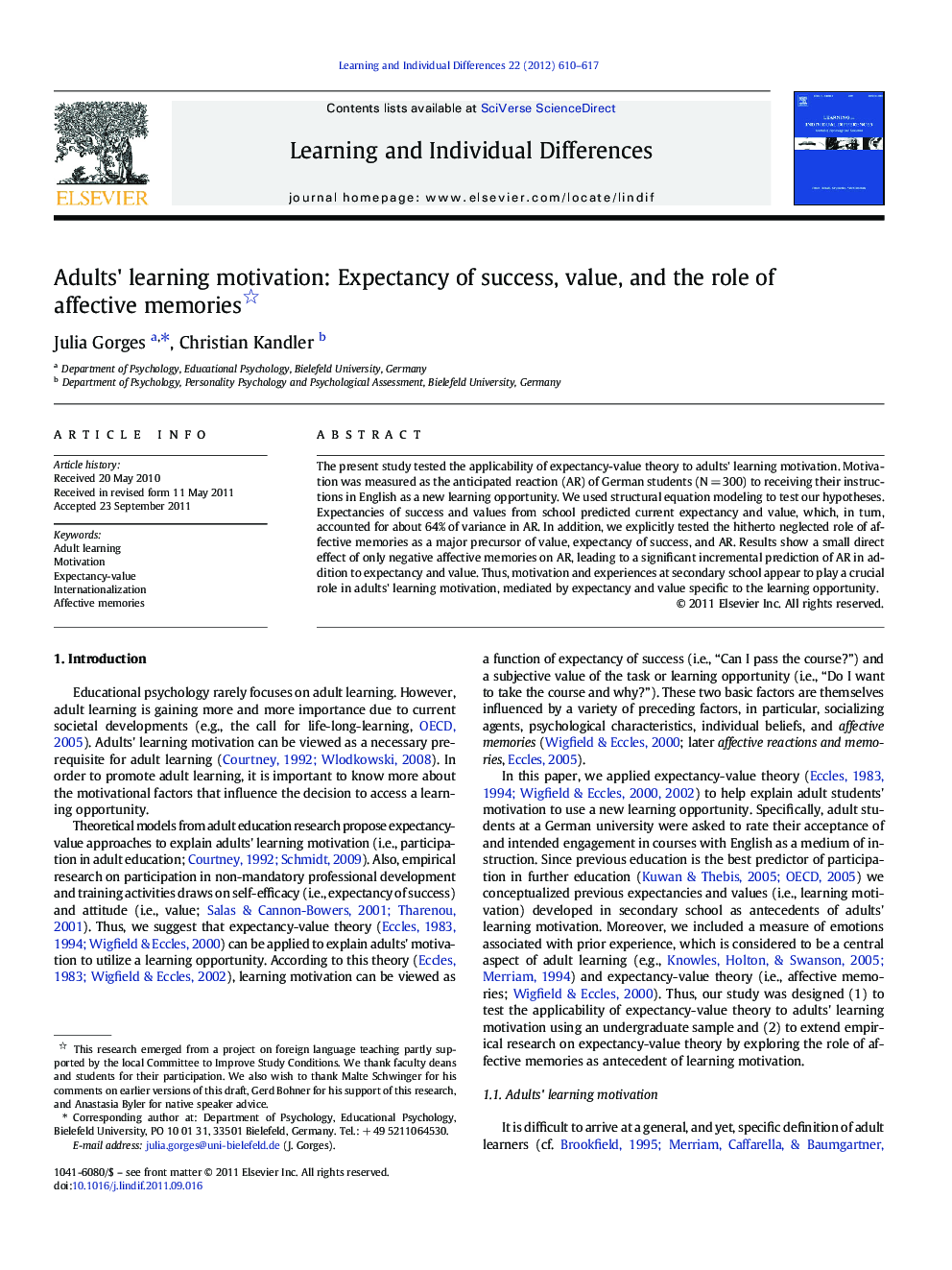| Article ID | Journal | Published Year | Pages | File Type |
|---|---|---|---|---|
| 365006 | Learning and Individual Differences | 2012 | 8 Pages |
The present study tested the applicability of expectancy-value theory to adults' learning motivation. Motivation was measured as the anticipated reaction (AR) of German students (N = 300) to receiving their instructions in English as a new learning opportunity. We used structural equation modeling to test our hypotheses. Expectancies of success and values from school predicted current expectancy and value, which, in turn, accounted for about 64% of variance in AR. In addition, we explicitly tested the hitherto neglected role of affective memories as a major precursor of value, expectancy of success, and AR. Results show a small direct effect of only negative affective memories on AR, leading to a significant incremental prediction of AR in addition to expectancy and value. Thus, motivation and experiences at secondary school appear to play a crucial role in adults' learning motivation, mediated by expectancy and value specific to the learning opportunity.
► Expectancy-value theory was applied to explain adults' learning motivation. ► Learning motivation from secondary school has been found to play a crucial role in adults' learning motivation. ► School-related affective memories appear to have only a small effect on subsequent learning motivation.
